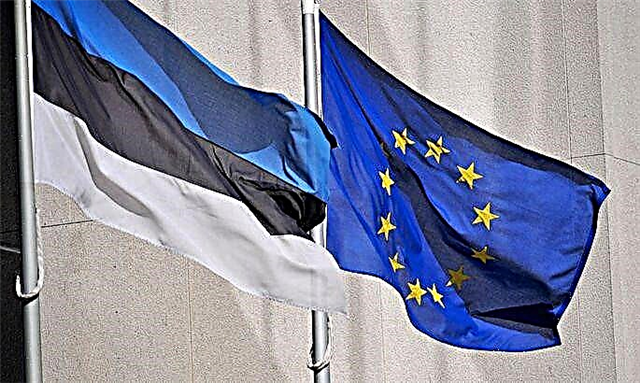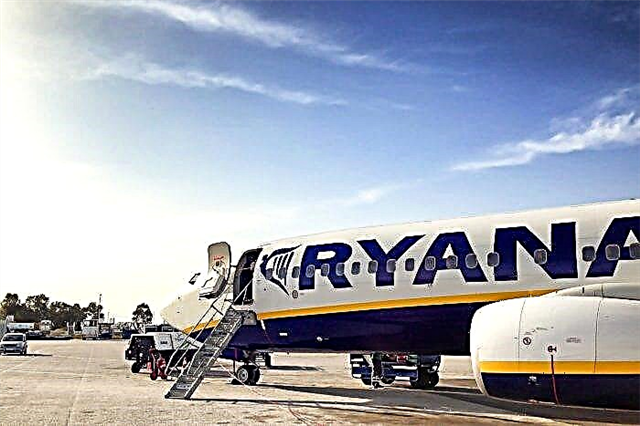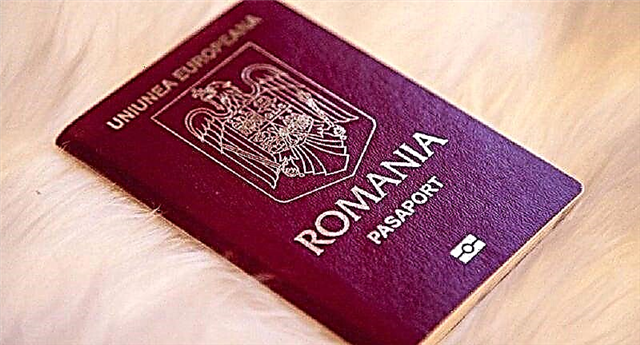A visa to Greece is issued by analogy with other Schengen countries. Experienced tourists may even be issued multiple permits, which will allow them to visit many EU countries. You do not need to obtain a Greek visa if you already have a valid Schengen visa issued earlier to another country. If there is no such permission, you will have to request it.
Types of visas to Greece
To visit Greece, you will need to apply for one of the following visas:

Transit (category A or B). Opens if a citizen travels to a non-Schengen country with a transfer in Greece. Type A assumes being on the territory of the airport until the moment of landing, and type B makes it possible to live in the country for up to 5 days;
- Tourist (type C). This is a Schengen visa, which can also be opened for the purpose of visiting friends, for a private visit or for a business trip. Opens for travel dates or another period at the discretion of the Consulate;
- National (type D). Assumes a long-term stay in Greece. With a national permit, a foreigner can work here (work visa), run his own business or go to university;
- Multivisa (type C). The same Schengen visa, but with an extended period of validity. It can be issued for six months, a year or 3 years. However, there are also restrictions: a citizen can be present on the Schengen territory for no more than three months in half a year.
Also, the Greeks offer to issue a combined visa - type D + C. Within Greece, it functions as a national one, and beyond its borders - as a Schengen one. However, such permits are rarely issued to Russian tourists.
Where to get a visa
There are several ways to apply for the Greek Schengen:
- Contact a travel agency or an accredited tour operator (for example, Mouzenidis is a tour operator that specializes in Greece). Now tourists are increasingly less likely to turn to them for help, preferring to act independently;
- Service and visa center. 19 SVCs have been opened in Russia, and every major city has its own branch. You can find out the addresses, phone numbers and contacts of the centers on the website http://greece-vac.ru/, where you can also sign up for the submission of papers;
- Come to the Consulate General of Greece. For Russians, there are only three of them: in Moscow, St. Petersburg and Novorossiysk. Consulates General are engaged in issuing long-term permits or are considering an application for Schengen in cases where the SVC refuses a visa.
The most common way to apply for a visa is to contact the Visa Application Center.
Town | Address and telephone |
| Velikiy Novgorod | Call center: 8 (812) 612-20-06. Etc. Lomonosov, 81. |
| Velikiy Novgorod | Call center: 8 (812) 612-20-06. Syrkovskoe highway, building 2a, office. 603, 6th floor |
| Vladivostok | Call center: 8 (499) 709-83-18, 8 (499) 703-38-62. Okeansky pr-t, 17, office 601. |
| Yekaterinburg | Call center: +7 (499) 709-83-18, 8 (499) 703-38-62. Business hotel "Panorama", st. Kuibyshev, 44. |
| Irkutsk | Call center: 8 (499) 709-83-18, 8 (499) 703-38-62. St. Sverdlov, 10, 2nd floor |
| Kazan | Call center: 8 (499) 709-83-18, 8 (499) 703-38-62. St. Paris Commune, 8. |
| Kaliningrad | Call center: 8 (499) 709-83-18, 8 (499) 703-38-62. St. 1812, 126. |
| Krasnodar | Call center: 8 (861) 777-00-39. St. Academician Pavlov, 64. |
| Krasnoyarsk | Call center: 8 (499) 709-83-18, 8 (499) 703-38-62. St. Maerchak, 16. |
| Moscow | Call center: 8 (499) 709-83-18, 8 (499) 703-38-62. SVC for individual applicants: 2nd Volkonsky per., 10. SVC for travel agencies: Nikitsky Boulevard, 17. |
| Murmansk | Call center: 8 (812) 612-20-06. St. Karl Liebknecht, 13. |
| Nizhny Novgorod | Call center: 8 (499) 709-83-18, 8 (499) 703-38-62. St. Osharskaya, 16. |
| Omsk | Call center: 8 (499) 709-83-18, 8 (499) 703-38-62. St. Frunze, 1/4, office 713, floor 7. |
| Penza | Call center: 8 (499) 709-83-18, 8 (499) 703-38-62, St. Moscow, 29. |
| Permian | Call center: 8 (499) 709-83-18, 8 (499) 703-38-62. St. Chernyshevsky, 28, 2nd floor |
| Petrozavodsk | Call center: 8 (812) 612-20-06. St. Gogol, 6. |
| Pskov | Call center: 8 (812) 612-20-06. Rizhsky prospect, 60. |
| Rostov-on-Don | Call center: 8 (861) 777-00-39. St. Trolleybus, 24 / 2v, 2nd floor |
| Saint Petersburg | Call center: 8 (812) 612-20-06. St. Bolshaya Raznochinnaya, 16a (entrance from Chkalovsky prospect, 7, Chkalovsky shopping center), 2nd floor. |
| Samara | Call center: 8 (499) 709-83-18, 8 (499) 703-38-62. St. Michurina, 78, 2nd floor, office 2, Millennium business center. |
| Saratov | Call center: 8 (499) 709-83-18, 8 (499) 703-38-62. St. Vavilova, 38/114, letter A. |
| Surgut | Call center: 8 (499) 709-83-18, 8 (499) 703-38-62. St. Republic, 63. |
| Tomsk | Call center: 8 (499) 709-83-18, 8 (499) 703-38-62. Etc. Lenin, 82b. |
| Tyumen | Call center: 8 (499) 709-83-18, 8 (499) 703-38-62. St. Malygina, 49, building 2. |
Greece Visa Application Process
The whole process of registration of the Greek Schengen consists of several stages:
- Collection of all necessary documents, taking into account additional papers;
- Filling out the Schengen application form;
- Make an appointment at the Visa Application Center or the Consulate General. In the first case, you can sign up online on the SIC website, in the second, you will have to call the selected consulate for an appointment;
- Submission of a package of documents and passing the fingerprinting procedure. The consular fee must be paid on the same day. A few days after submission, the applicant receives a passport with a ready-made visa.
Important! There is no Greek representation in Belarus, so Belarusians apply for a visa to the Consulate General in Moscow, which is located on st. Spiridonovka, 14. Ukrainian citizens can apply in three cities - Odessa, Kiev and Mariupol.
Visa documents
To apply for a visa to Greece, you must collect the following documents:
- Photographs in color with a light background, 2 pieces. Must comply with ICAO standard;
- Foreign passport along with copies of the first page and all Schengen visas;
- Civil Identity Card, supplemented with copies of completed pages;
- Proof of financial security. This can be a bank statement with an amount on the account of at least 60 euros per day or a sponsorship letter if the applicant himself does not have enough funds;
- Medical insurance. It necessarily prescribes the countries to which the action applies, including Greece. Minimum coverage amount - 30,000 euros;

- Certificate from the place of work indicating the position and average salary;
- Proof of residence. This is a hotel reservation (for a trip), an invitation (for visiting friends), renting an apartment (for other visits);
- Confirmation of the route. As a rule, these are air tickets to both sides. If a tourist trip is intended, the applicant will need to prove that he intends to return to his home country.
The general list of papers must be supplemented with one more set, which must confirm the basis of entry:
- For a trip, this is a voucher;
- For employment - a contract with an employer;
- For a guest visit - an invitation;
- To open a business - papers for the company.
Filling out the questionnaire
The set of documents must be supplemented with a questionnaire. You can download the form on the website of the Consulate General or the Visa Application Center.
Filling takes place taking into account the following rules:
- The questionnaire consists of 4 pages, it is printed on two sheets on both sides; (Download a sample of the questionnaire)
- The application is filled out in the Latin alphabet, in legible handwriting. It is best to use a black pen and block letters;

- The questionnaire contains questions about the status of the applicant, his work, contacts, previous visits to the EU countries. All questions must be answered honestly, false information threatens to refuse a visa;
- All information must be entered without blots, corrections in the finished document are not allowed;

- For a minor, one of the parents fills in the questionnaire;
- On pages 3 and 4, at the very bottom, the personal signature of the applicant and the date of filling out the questionnaire are put.


Passing fingerprinting
 Greece, like the rest of the Schengen countries, has required fingerprinting from visa applicants since 2015. This is a procedure in which a foreigner is fingerprinted and a digital photo of his face is taken.
Greece, like the rest of the Schengen countries, has required fingerprinting from visa applicants since 2015. This is a procedure in which a foreigner is fingerprinted and a digital photo of his face is taken.
The received data is loaded into a single database, where it is stored for the next 5 years. They can be accessed by employees of all consulates of the Schengen countries.
If the applicant decides to reapply for a visa within 5 years, he will not have to be fingerprinted again.
The following are exempted from the procedure:
- Children under 12;
- Persons with disabilities who cannot be fingerprinted (hands or fingers missing);
- High-ranking officials (presidents and persons close to them).
All others must appear in person at the visa office or consulate to undergo the biometrics procedure.
Important! When registering for submission of papers to the SVC, the applicant needs to clarify whether the center has a fingerprinting device. There are centers that are not equipped with such devices. But there are also such representations where there are mobile devices for carrying out the procedure at home.
Obtaining a ready visa
You can check the readiness of your passport with a visa on the website of the service center: http://greece-vac.ru/. The visa will be ready when the application has received the status “approved”.
There are two ways to pick up a document with a visa sticker:
- Arrange courier delivery to your home. The cost of this service starts from 300 rubles and depends on the region of residence of the applicant;
- Pick up yourself on a first-come, first-served basis. The passport is collected at the same Consulate where the submission took place.
Also, holders of Greek visas say that in some missions they offer to obtain passports through a “priority queue”. This is a separate window where documents are issued bypassing the main queue. Worth this about 300 rubles.
How much does a visa cost
When submitting documents, a foreigner pays a consular fee. Money is deposited in rubles at the exchange rate on the date of payment. The duty is:
- 35 euros: standard Schengen visa;
- 70 euros: Schengen for urgent registration;
- 120 euros: national visa.
If the documents are handed over to the visa service, an additional service fee is paid. This is a fixed amount that is 1380 rubles.
Who is exempt from paying the fee
Certain categories of applicants are exempted from paying consular and service fees. This:
- Children under 6 years of age;
- Minor applicants entered in the passport of one of the parents;
- Close relatives of citizens of the EU countries;
- Blood relatives and spouses of Russians living in Greece on an official basis;
- Students and schoolchildren, if the trip is for the purpose of learning.
Visa processing time
Officially, a visa is issued within 3 days, but this period is often delayed up to 12-14 days. It is possible to speed up the visa processing by requesting an urgent permit. It is done in 2 days, but you will have to pay the state fee twice as much as with the usual registration.
Important! The documents required for obtaining a visa should be submitted 3-4 months before the date of the scheduled departure. This period will allow you to play it safe if visa officers have questions, or if additional papers are required.
Why may a visa be refused
If the visa is not approved for the applicant, he will receive an official notification in writing on an A4 sheet.
The most common reasons for rejection are:
- Insufficient amount of funds in the account for staying in the Schengen country;
- Errors or misprints in the questionnaire;
- An attempt to provide false information or fraudulent documents;
- Violation of the visa regime when visiting Schengen countries in the past.
Important! The applicant can correct the application form or prepare missing documents and re-apply for the visa. If a foreigner does not agree with the decision of the visa officer, he has the right to appeal and resolve the issue through the court.
How to avoid visa refusal
To minimize the risk of visa refusal, it is recommended to adhere to the following rules:
- Go for a visa to the consulate of the country where the applicant intends to go;
- When traveling to several European countries, a visa is requested from the country where the tourist will stay for the longest time;
- If there is no obvious difference between the periods of stay in different states, the visa is opened at the place of first entry;
- The average salary indicated in the certificate from the place of work must be at least 30,000 rubles;
- The questionnaire should be filled out deliberately, having checked all the information before and making sure that it is accurate.
Traveler Reviews
Alexander, Moscow:I applied for a Greek visa together with my wife. Before that, there were two consecutive visas to Italy (both were made for 2 years), even earlier - two six months and one Spanish for a year. In 3 years, they have been to Greece 5 times, entered on an Italian visa.
Another visa, this time to Greece, was issued by ourselves through the service center. The documents were collected as usual. They made a sponsorship letter to my wife and attached my bank statement. Just in case, they also put in a certificate from my work, the earnings are above average. Attached all closed visas (copies).
Since we already have two closed two-year Schengens, we immediately requested a three-year visa. As a result, we approved a multivisa for a year. I don’t know what it’s connected with, but recently the staff of the Greek consulate has been cutting visas for foreigners. Some experienced ones are generally given visas for the duration of the trip, so we are even happy with this result. In general, getting a visa is like a lottery. Those who are lucky will receive a "cartoon" for 2-3 years, those who are unlucky will be content with one trip.
Marina, Moscow:And I will share my successful experience. We planned a trip to Greece with two families, submitted to the visa center on the street. Spiridonovka, 14.
Three people - husband, wife, child under 12 years old. We prepared questionnaires, paid air tickets, hotel reservations from booking without payment, insurance for all for the duration of the trip. Of the financial guarantees, there were only certificates from work, a sponsorship was made for the child. They also applied closed visas: six months to Slovenia, German for the dates of the trip, two months to Portugal. We applied for a visa for 5 years, in the end we got "cartoons" for 3 years.
Family of three (Ukrainian, Russian and 3-year-old child). They had the same documents, additionally a residence permit and registration for a foreigner. The citizen of the Russian Federation had an old Schengen visa to Spain, the rest did not have visas. As a result, the Russian received a one-year visa, the Ukrainian and the child - permission under the terms of the tour.
Vasily, Yekaterinburg:A week ago, together with his wife and child, they safely received the Schengen visa to Greece. We did everything ourselves through the visa center. We all came to serve together on Saturday at 11 am. The queue was very long, but we were free already at 12 o'clock. In the process of accepting papers, it turned out that we did not have insurance, and the questionnaires were not completed to the end. Everything was completed on the spot.
I would like to note that all the conditions for a comfortable presentation have been created at the SVC. There are computers with Internet access and a connected printer, so you can book a hotel and print your reservation immediately on the spot. Or make copies of documents if you didn't have time. True, the copies are paid - 10 rubles per sheet. Insurance can be done here, the agent sits right at the entrance to the windows. There is a photo booth, so photos can also be taken on the spot.
After completing all the documents, people take an electronic ticket in the machine and go to the window when their turn is highlighted. There are about 30 windows there, most of them work, so the queue moves quickly. The host employee is very polite, helped in every possible way and filled in the blanks in the questionnaire herself. I even went to the machine myself to make a copy of some missing piece of paper. We tracked the status of our passports on the website. The documents were handed over on Saturday, and on Wednesday evening the status “ready for issue” appeared. In the end, the whole process took me 3 days.
The process of obtaining a visa for a trip to Athens, Crete and other regions of Greece will be difficult only for those who have not done Schengen before. But if you collect documents according to the requirements and samples, the permit will be approved without much effort.












